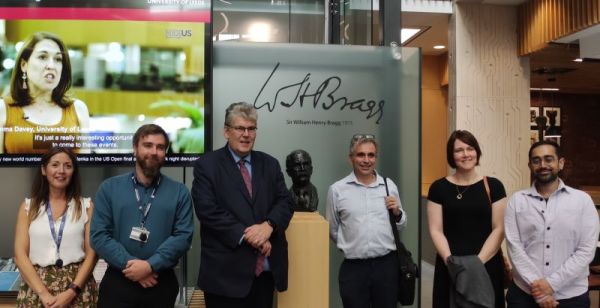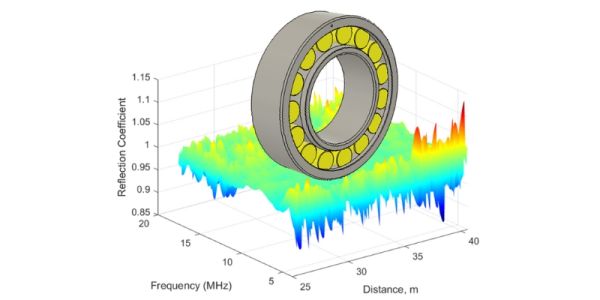
Chief Scientific Adviser visits to discuss Net Zero
The Chief Scientific Adviser for Energy Security and Net Zero (DESNZ) has visited the University of Leeds to meet researchers at the forefront of tackling climate change.

The Chief Scientific Adviser for Energy Security and Net Zero (DESNZ) has visited the University of Leeds to meet researchers at the forefront of tackling climate change.

It’s hip without the hop – a research manager from the University of Leeds has been creating music from an unlikely source.

Climate change sceptics and climate activists are being urged to get together to try to find common ground as part of a study by the University of Leeds.

A smartphone company and University of Leeds researchers aim to make digital photographs more accurately represent all skin tones.

A ravenous black hole in a galaxy close to ours is taking bites out of a star like the Sun every time it orbits, new research has revealed.

The continued pursuit of economic growth in high income countries is at odds with the climate targets and fairness requirements of the Paris Agreement, say researchers.

University of Leeds research into how expectant parents receive unexpected news during pregnancy ultrasound scans has informed a government-commissioned review into early pregnancy loss.

Tropical forests in South America lose their ability to absorb carbon from the atmosphere when conditions become exceptionally hot and dry, according to new research.

A spin-out company from the University of Leeds has received investment to accelerate the development of AI dentistry products.

Tickets are now on sale for the Ilkley Literature Festival, which is celebrating its 50th year with a headline slot by Leeds Professor of Poetry Simon Armitage.